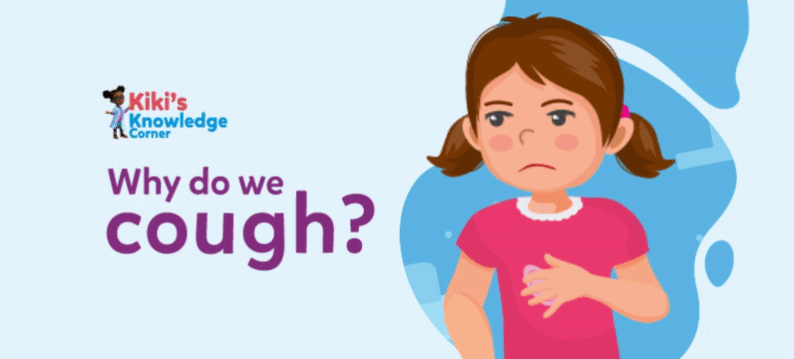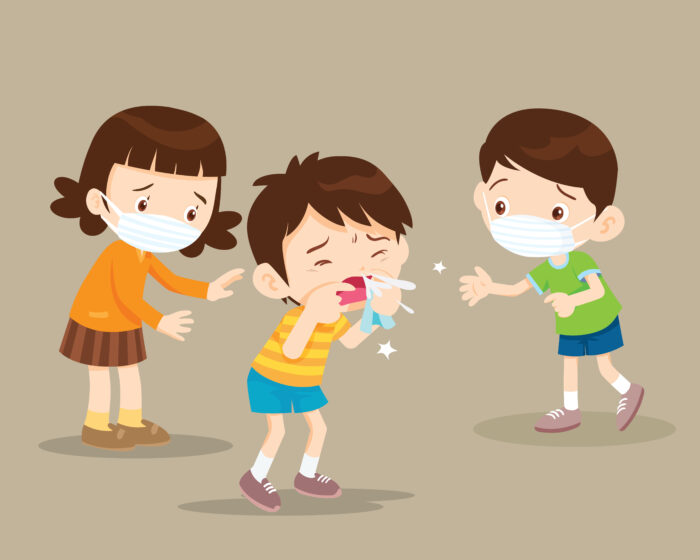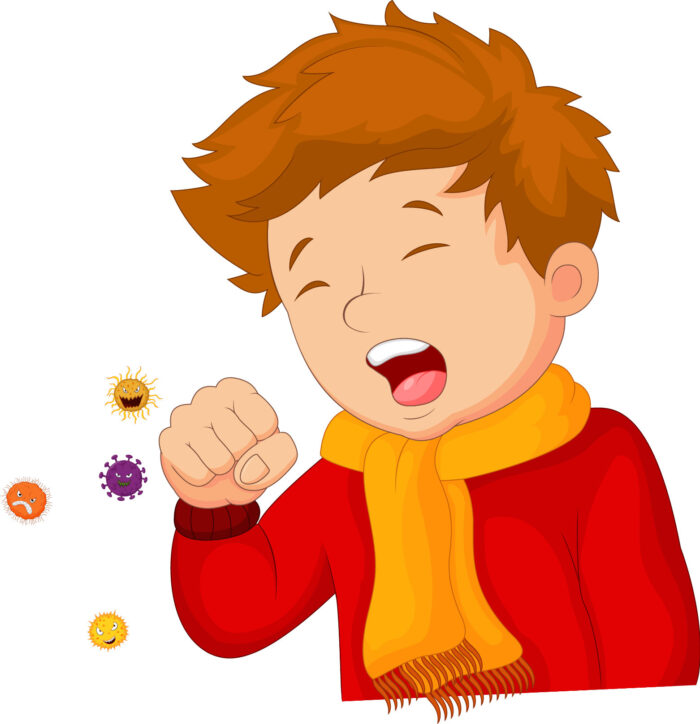
Hello, young learners! This is Kiki, back again with another edition of Knowledge Corner. Last week, I was down with a cold and developed a bad cough. As I was recovering, I got an idea to explore why we cough and understand what happens to our bodies when we cough. Before we explore the reasons, you need to understand that most coughs are harmless. However, if you cough longer than for two to three weeks or if the intensity is high, please ask your parents to have you consult a doctor.
A cough is the human body’s response when something irritates your throat or windpipe. Your body senses a foreign particle inside and sends it out through the mouth, clearing the airway. When the particle is thrown out of the body, a quiet sound that resembles ‘ahem’ can be heard. These foreign particles could be – a piece of food stuck in your windpipe or even pet hair. Through coughing, you clear your throat and air pathways. These coughs usually last for a few minutes until the particle leaves your body, and then you are back to normal.

However, there are coughs that last for weeks. These coughs are symptoms of a common cold caused by viral infections. They are sometimes accompanied by mucous (also called phlegm) that can also be dry. Generally, cough medicines or syrups help reduce the intensity of these coughs. There are other types of coughs that are more long-term caused by asthma and other respiratory infections. You need a doctor’s prescription to keep them under control.
When a foreign particle enters your mouth and gets lodged in your windpipe, your throat and windpipe start to feel irritated. That’s when the nerves in that area send signals to your brain, which activates the ‘cough mode.’
When your brain activates the cough mode, this is what happens in the duration of one cough:

Once the irritant is out of your body, it gets back to its normal breathing cycle, getting rid of the irritating cough. However, it’s a good thing to be able to cough and expel the irritant from the body. It’s one of the human body’s defence mechanisms.
Now that you know what a cough is, tell us what other body functions you would like to know about? Share your inputs with us in the comments.
Aparna is a mom, singer and dreamer. At BYJU'S, she writes stories about learning for children. She believes in the power of music, especially ghazal, the magic of the universe and happy learners. When not writing or singing, you will find her intensely engaged in conversations about life and the power of words.